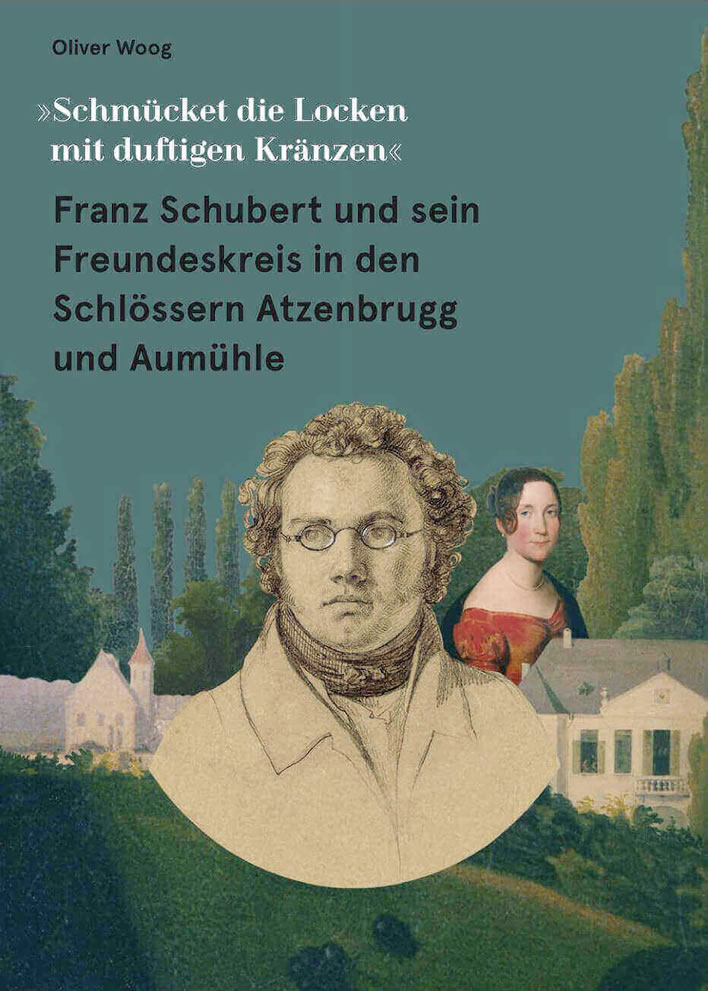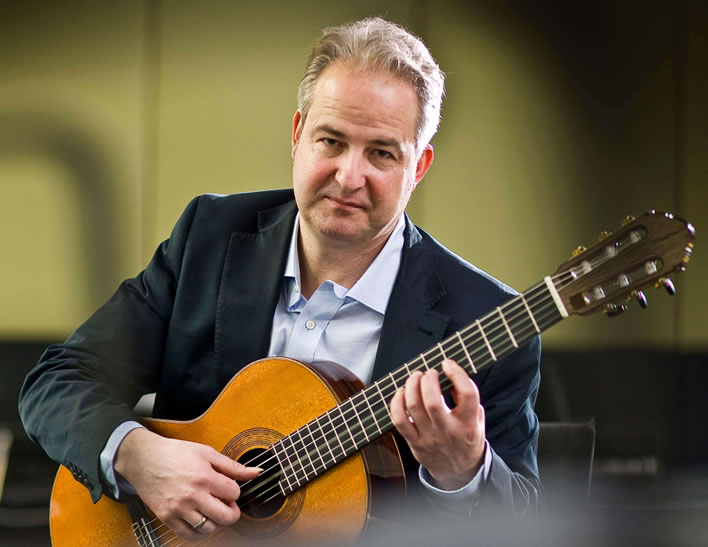Franz Schubert und sein Freundeskreis in den Schlössern Atzenbrugg und Aumühle
Posted by Richard on UTC 2020-05-11 10:11
Schubert fans who read German should note the recent publication of a book by the German concert guitarist and Schubert researcher Oliver Woog.

The cover of Franz Schubert und sein Freundeskreis in den Schlössern Atzenbrugg und Aumühle.
This book is a welcome contribution to the documentary background of those two places, Schloss Atzenbrugg and Schloss Aumühle, which played an interesting part in the activities of Schubert and the circle of friends around him. The name of Atzenbrugg, a country house about 40 km from the centre of Vienna, will be familiar to anyone who has read only the slimmest Schubert biography.
But reliable documentary evidence is a scarce commodity in the tertiary Schubert literature, meaning that up to now readers have had to make do with only sketchy outlines.
As Oliver Woog says in his description of the book:
For about the last 150 years biographical research and the interpretation of the Schubert canon have frequently rested to an exceptional degree on a highly-charged emotional base. Leveraged by cultural adoptions, a unique melting pot of devotion, reverence and affection for this singular artist and his work has grown up.
Similarly, in the case of the Schubert locations, one encounters unavoidably the traditional passionate appreciation and the care for the repertoire by societies and locations, but also sobering, financially-oriented viewpoints about historical conservation and appropriate usage by concerts and festivals.
Biographische Schubert-Forschung und Werkinterpretation sind seit ca. 150 Jahren vielfach außergewöhnlich emotional unterlagert. Einerseits Probleme durch Vereinnahmung potenzierend, entstand andererseits ein unvergleichlicher Schmelztiegel an Hingabe, Ehrerbietung und Zuneigung zu einem singulären Künstler und seinem Werk. Gleichfalls bei der Beschäftigung mit Schubert-Stätten stößt man unwillkürlich auf die traditionell leidenschaftliche Würdigung und Repertoirepflege durch Vereine und Orte, aber auch auf ernüchternd pekuniär orientierte Betrachtungsweisen hinsichtlich Denkmalerhaltung und angemessener Konzert- und „Festival“-Praxis.
Translation FoS
In our articles on Schubert for Figures of Speech we have tried to concentrate on the documentary record in order to see Schubert's biography from a sociological and social-historical point of view. Doing this requires hard-hearted empiricism and iconoclasm, which seems to upset some Schubert fans, who derive innocent pleasure from the 'melting pot' of affection which Woog mentioned.
As far as the Schubert song texts are concerned, we have insisted on reading the German originals as they are, in all their sometimes heavenly, sometimes hellish reality, and not simply projecting what we think they are onto them instead. The 150 years of reverence mentioned by Woog make this an uphill struggle.
We are thus particularly happy to see Oliver Woog's research contribution published. The book is attractively laid out and illustrated and is being sold at a very reasonable price. We hope to be able to review it in depth soon.
A preview of the book is available on the website and the book itself can be ordered there, too.

Oliver Woog, concert guitarist and Schubert researcher. Image: Oliver Woog.
0 Comments UTC Loaded:
Input rules for comments: No HTML, no images. Comments can be nested to a depth of eight. Surround a long quotation with curly braces: {blockquote}. Well-formed URLs will be rendered as links automatically. Do not click on links unless you are confident that they are safe. You have been warned!